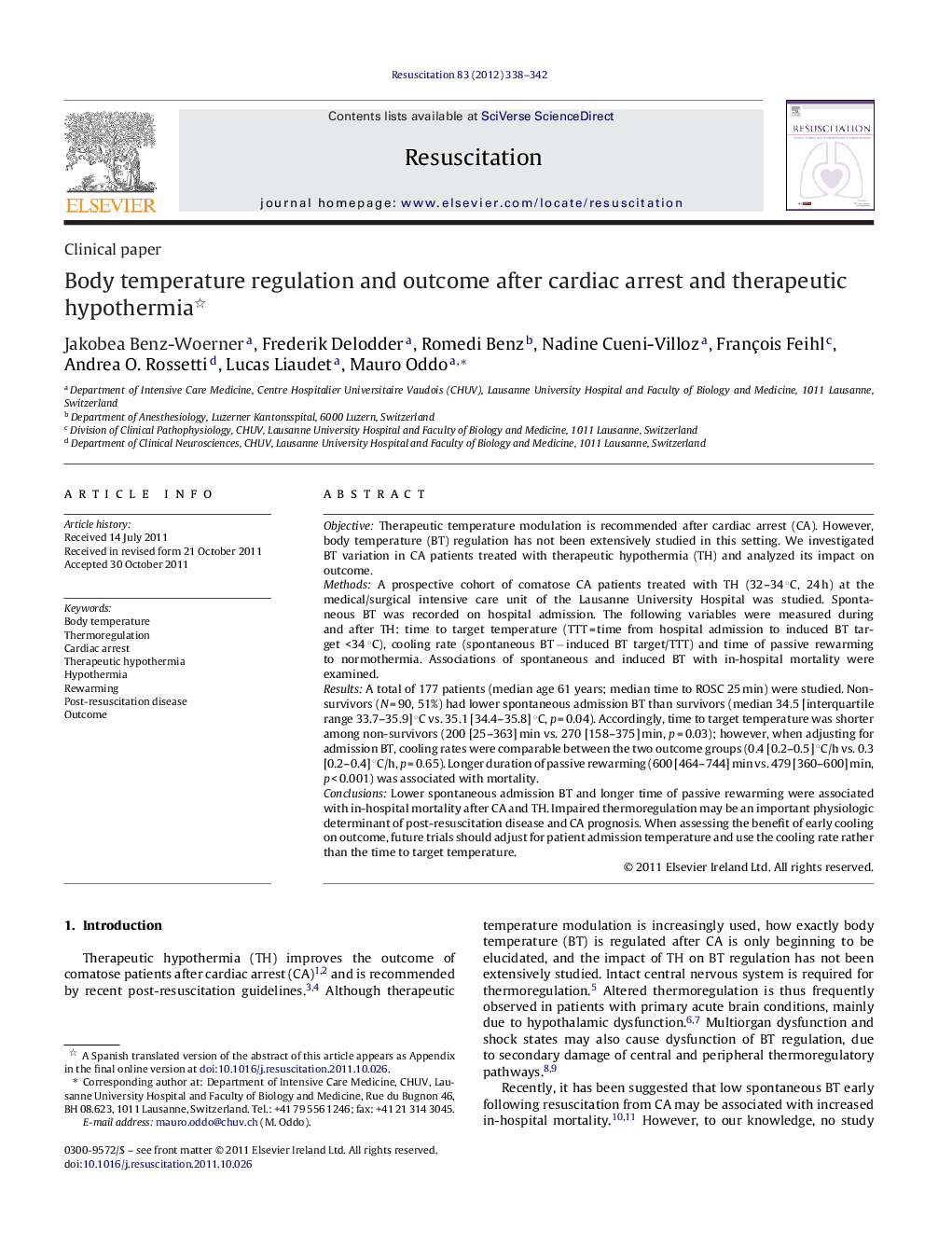| Article ID | Journal | Published Year | Pages | File Type |
|---|---|---|---|---|
| 3008437 | Resuscitation | 2012 | 5 Pages |
ObjectiveTherapeutic temperature modulation is recommended after cardiac arrest (CA). However, body temperature (BT) regulation has not been extensively studied in this setting. We investigated BT variation in CA patients treated with therapeutic hypothermia (TH) and analyzed its impact on outcome.MethodsA prospective cohort of comatose CA patients treated with TH (32–34 °C, 24 h) at the medical/surgical intensive care unit of the Lausanne University Hospital was studied. Spontaneous BT was recorded on hospital admission. The following variables were measured during and after TH: time to target temperature (TTT = time from hospital admission to induced BT target <34 °C), cooling rate (spontaneous BT − induced BT target/TTT) and time of passive rewarming to normothermia. Associations of spontaneous and induced BT with in-hospital mortality were examined.ResultsA total of 177 patients (median age 61 years; median time to ROSC 25 min) were studied. Non-survivors (N = 90, 51%) had lower spontaneous admission BT than survivors (median 34.5 [interquartile range 33.7–35.9] °C vs. 35.1 [34.4–35.8] °C, p = 0.04). Accordingly, time to target temperature was shorter among non-survivors (200 [25–363] min vs. 270 [158–375] min, p = 0.03); however, when adjusting for admission BT, cooling rates were comparable between the two outcome groups (0.4 [0.2–0.5] °C/h vs. 0.3 [0.2–0.4] °C/h, p = 0.65). Longer duration of passive rewarming (600 [464–744] min vs. 479 [360–600] min, p < 0.001) was associated with mortality.ConclusionsLower spontaneous admission BT and longer time of passive rewarming were associated with in-hospital mortality after CA and TH. Impaired thermoregulation may be an important physiologic determinant of post-resuscitation disease and CA prognosis. When assessing the benefit of early cooling on outcome, future trials should adjust for patient admission temperature and use the cooling rate rather than the time to target temperature.
